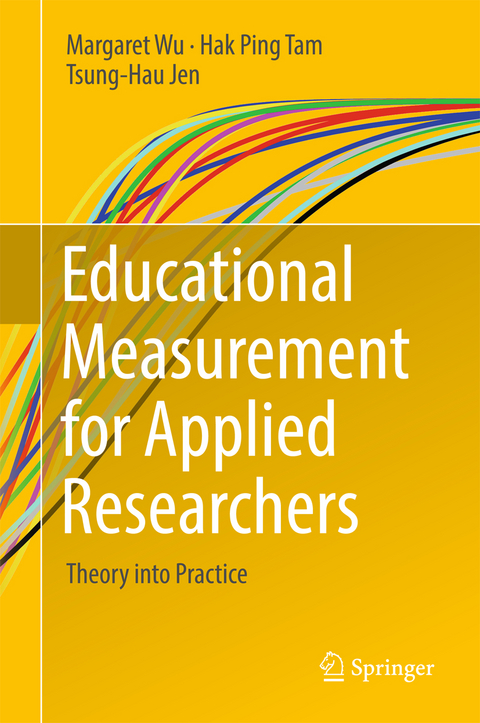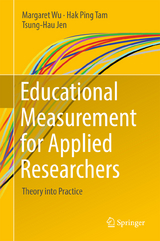Educational Measurement for Applied Researchers
Springer Verlag, Singapore
978-981-10-3300-1 (ISBN)
Having taught assessment subjects to students from diverse backgrounds for a number of years, the three authors have a wealth of experience in presenting educational measurement topics, in-depth concepts and applications in an accessible format. As such, the book addresses the needs of readers who use CTT and IRT in their work but do not necessarily have an extensive mathematical background. The book also sheds light on common misconceptions in applying measurement models, and presents an integrated approach to different measurement methods, such as contrasting CTT with IRT and multidimensional IRT models with unidimensional IRT models. Wherever possible, comparisons between models are explicitly made. In addition, the book discusses concepts for test equating and differential item functioning, as well as Bayesian IRT models and plausible values using simple examples.
This book can serve as a textbook for introductory courses on educational measurement, as supplementary reading for advanced courses, or as a valuable reference guide for researchers interested in analyzing student assessment data.
Margaret Wu has taught a number of Educational Measurement courses at the University of Melbourne. She has been involved in large-scale assessment programs such as PISA and TIMSS. Margaret’s research interests include the development of item response models and mathematics problem solving. She has co-authored two IRT software programs (ACERConQuest and the TAM package in R). Hak Ping Tam has many years of experience teaching various topics in educational measurement and statistics. Hak Ping has been involved in the design and administration of various Taiwan public examinations and he is an advisor to examination bodies on data analysis procedures of student assessment data. He has also participated in standard setting procedures as well as delivered numerous training sessions on item writing. Tsung-Hau Jen has had an extensive involvement in Taiwan’s participation of TIMSS. He has an expertise in large-scale assessment methodologies, particularly in the area ofcomplex sampling. Tsung-Hau has taught university courses on large-scale assessments and quantitative methods. He frequently provides advice to researchers involved in Taiwan’s national student monitoring programs.
What Is Measurement.- Construct, Framework and Test Development - from IRT Perspectives. - Test Design.- Test Administration and Data Preparation.- Classical Test Theory.- An Ideal Measurement.- Rasch Model (The Dichotomous Case).- Residual-based Fit Statistics.- Partial Credit Model.- Two-parameter IRT Models,- Differential Item Function.- Equating.- Facets Models.- Bayesian IRT Models (MML estimation).- Multidimensional IRT models.
| Erscheinungsdatum | 20.01.2017 |
|---|---|
| Zusatzinfo | 74 Illustrations, color; 40 Illustrations, black and white; XIV, 306 p. 114 illus., 74 illus. in color. |
| Verlagsort | Singapore |
| Sprache | englisch |
| Maße | 155 x 235 mm |
| Themenwelt | Mathematik / Informatik ► Mathematik ► Computerprogramme / Computeralgebra |
| Mathematik / Informatik ► Mathematik ► Wahrscheinlichkeit / Kombinatorik | |
| Sozialwissenschaften ► Pädagogik | |
| Sozialwissenschaften ► Soziologie ► Empirische Sozialforschung | |
| Schlagworte | classical test theory • educational measurement • Educational Measurement R Packages • Educational Testing • Item response theory • Psychometrics • Test Analysis • Test and Scale Development |
| ISBN-10 | 981-10-3300-5 / 9811033005 |
| ISBN-13 | 978-981-10-3300-1 / 9789811033001 |
| Zustand | Neuware |
| Informationen gemäß Produktsicherheitsverordnung (GPSR) | |
| Haben Sie eine Frage zum Produkt? |
aus dem Bereich




